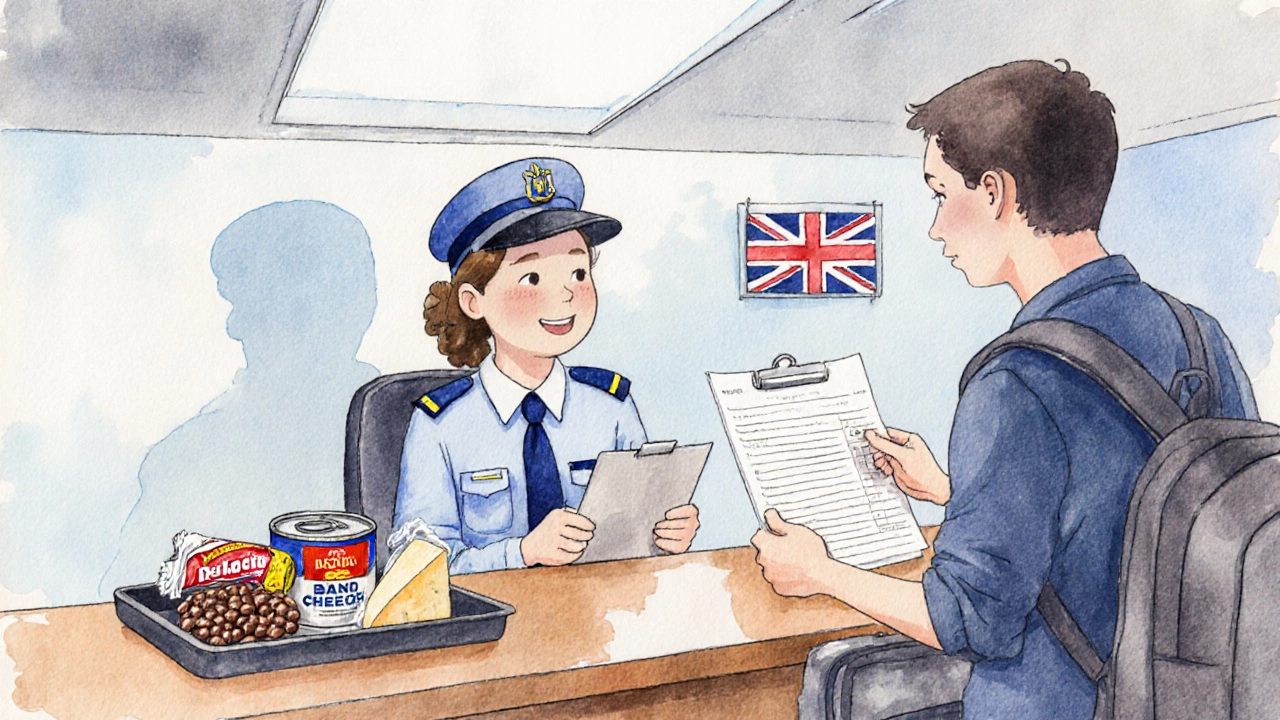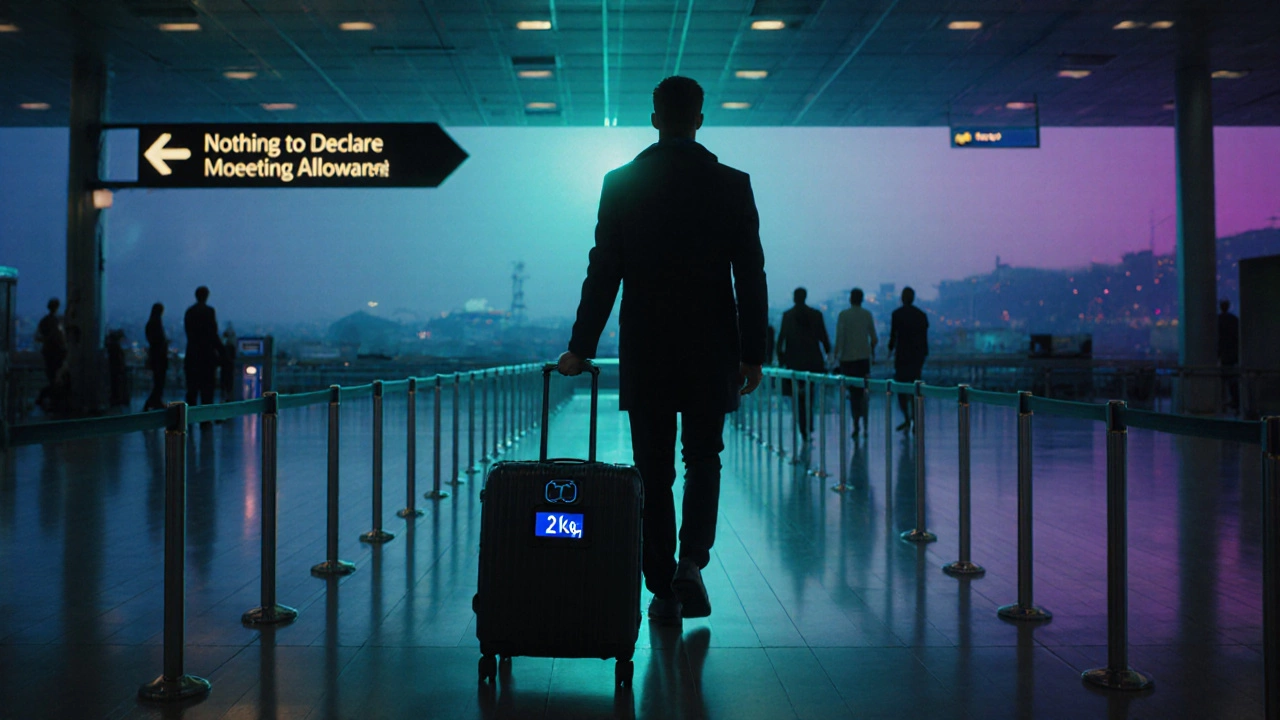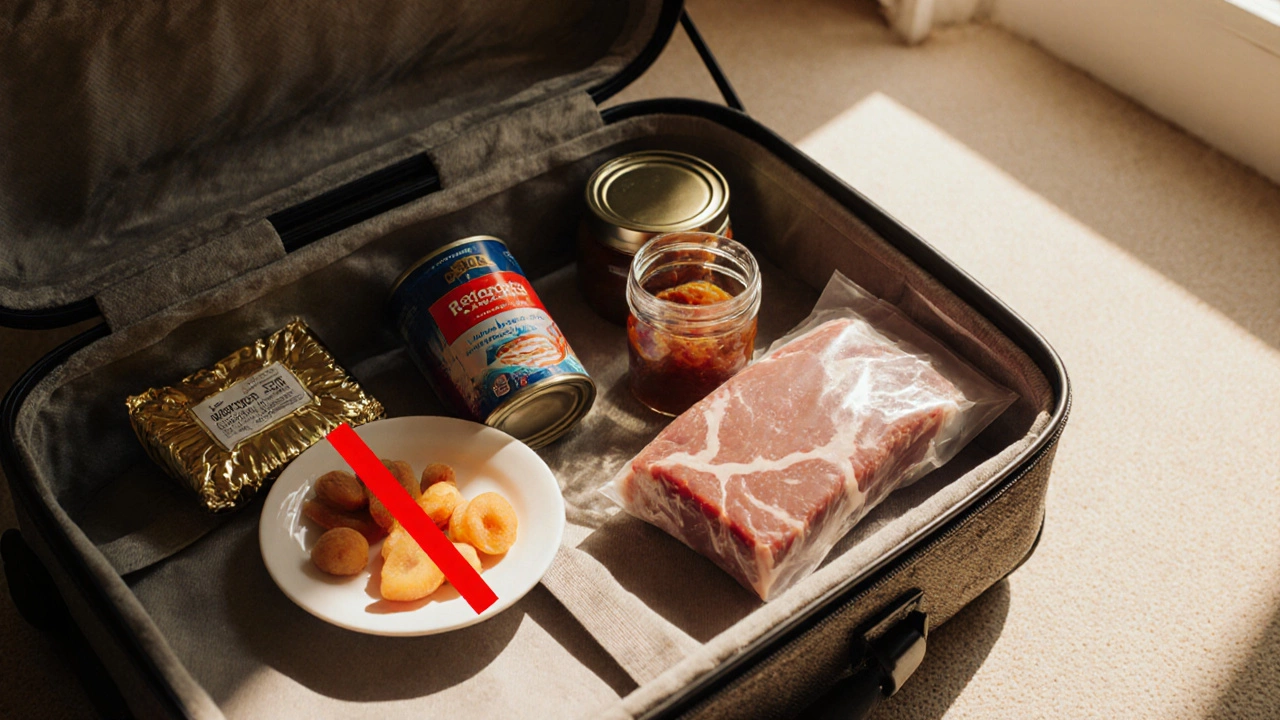UK Food Import Checker
Enter a food item to see if it's permitted when traveling to England. Based on UK customs regulations and the 2kg personal allowance.
Ever stared at your suitcase, wondering if that homemade marmalade or the cheese you bought at the market can join you on the flight to England? You’re not alone. The UK’s customs rules can feel like a maze, but once you know the basics, packing snacks becomes a breeze.
Key Takeaways
- Fresh meat, dairy, and unprocessed produce are generally banned for personal luggage.
- Processed, sealed foods (chocolate, canned goods, dried fruit) are usually permitted.
- You must declare anything that could be restricted, even if you think it’s allowed.
- The personal allowance lets you bring up to 2 kg of food without extra duties.
- Breaking the rules can lead to fines, confiscation, or delays at the airport.
Understanding the Basics
Food import rules for England are managed by the UK Border Force and HM Revenue & Customs, aiming to protect agriculture and public health. After Brexit, the UK kept many EU food safety standards, but it also introduced stricter checks on meat, dairy, and fresh produce coming from outside Great Britain.
The good news? Most packaged, commercially sealed items travel without a hitch. The bad news? Anything that looks like it could host pests or disease-think raw chicken or fresh apples-gets stopped at the border.
What You Can Pack
Here’s a quick cheat‑sheet of foods that usually pass the UK’s customs gate:
- Chocolate bars, candy, and confectionery (as long as they’re sealed).
- Canned fish, meat, or beans - the can has to be intact.
- Dried fruits, nuts, and seeds (no added sauces).
- Commercially packaged cheese that’s pasteurised and wrapped.
- Specialty sauces, spreads, and jams in sealed jars.
- Baby food and formula, provided it’s for personal use.
These items fall under the Processed packaged foods foods that have been sealed, heat‑treated or otherwise prepared to prevent contamination. As long as the packaging is unopened and you’re not bringing bulk quantities, you’re in the clear.

What’s Prohibited
If you’re tempted to sneak a steak or a bunch of grapes, think again. The UK blocks the following:
- Fresh, raw, or cooked meat (including pork, beef, lamb, poultry).
- Unpasteurised dairy products like raw milk, soft cheeses, and yoghurt.
- Fresh fruits and vegetables that are not commercially sealed.
- Honey, unless it’s for personal use and under the personal allowance.
- Any animal products from countries not on the approved list.
These restrictions are part of the Meat and dairy restrictions UK rules that ban the import of certain animal‑derived foods to prevent diseases like foot‑and‑mouth and BSE. Violating them can result in seizure and a possible fine of up to £500.
How to Declare
When you land, head straight for the "Nothing to Declare" channel if you’re absolutely sure everything in your bag is allowed. If there’s any doubt, use the "Goods to Declare" lane. You’ll fill out a simple Declaration form a paper or electronic form used by UK Border Force to record items you’re bringing into the country. Declare the type of food, quantity, and country of origin. Honesty speeds up the process and avoids penalties.
Even if your items are permissible, the officer may ask to open the pack. Keep it easy - don’t hide food in hidden pockets or inside shoes.
Tips for Smooth Travel
- Check the latest guidance on the UK government website before you pack - rules can change, especially after pandemic or disease outbreaks.
- Label your food clearly. A small sticky note with the product name and origin helps customs verify quickly.
- Keep the total weight of food under the Personal allowance for travelers 2 kg of food and drink for free, without duty. Anything above may incur taxes.
- Use original, sealed packaging. If you repackage, you risk being flagged as a commercial import.
- If you’re traveling with a child, pack baby biscuits, formula, and ready‑made meals - these are expressly allowed for personal use.

Common Mistakes to Avoid
Even seasoned travelers slip up. Here are the most frequent errors and how to fix them:
- Assuming "British food" means “any food from the UK”. The rule applies to what you’re bringing in, not what you bought abroad.
- Trying to hide prohibited items in carry‑on bags. Be upfront; customs officers can search both hold and cabin luggage.
- Bringing large quantities of a permitted item (e.g., a kilo of chocolate) and thinking it’s still personal. Remember the 2 kg limit.
- Neglecting to declare homemade items. Even if you baked cookies, they count as food that must be declared.
Quick Reference Table
| Category | Allowed (✓) | Prohibited (✗) |
|---|---|---|
| Chocolate, candy | ✓ | |
| Fresh meat & poultry | ✗ | |
| Pasteurised cheese (sealed) | ✓ | |
| Unpasteurised dairy | ✗ | |
| Canned fish, beans | ✓ | |
| Fresh fruit, veg (unsealed) | ✗ | |
| Dried nuts, seeds | ✓ | |
| Honey (personal allowance) | ✓ |
FAQ
Can I bring homemade cookies in my suitcase?
Yes, as long as they’re for personal consumption and you declare them. Homemade items count as food and must be listed on the declaration form.
What’s the weight limit for food without paying duty?
Travelers can bring up to 2 kg of food and drink free of charge. Anything above that may be subject to duty or tax.
Are frozen meals allowed?
Frozen meals that are commercially sealed are generally permitted. Make sure the packaging isn’t damaged and that they’re not meat‑based.
Do I need to declare tea bags?
Tea bags are low‑risk and usually don’t need a declaration, but if you’re carrying more than a typical personal amount (e.g., a bulk box), it’s safer to declare.
What happens if I forget to declare a prohibited item?
Customs can seize the item and may issue a fine. Repeated offenses can lead to more serious penalties, so always declare anything you’re unsure about.
Bottom line: packing food for your England trip is doable, as long as you stick to sealed, processed items and respect the 2 kg personal allowance. When in doubt, declare - it’s faster, cheaper, and keeps your vacation stress‑free. Safe travels and enjoy those British scones!
